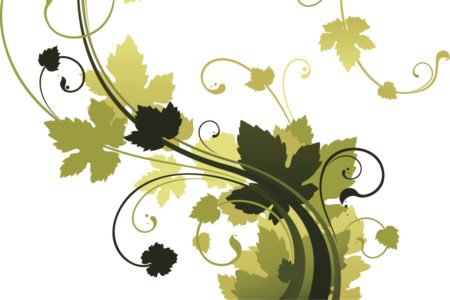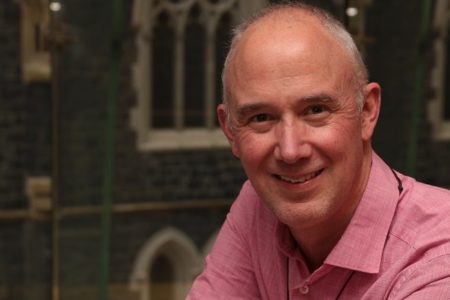You gave a cheeky shout out to your mum and dad during the Opening Worship service. How proud were they to see their son installed as Moderator?
Oh, mum and dad were certainly very proud. One of my treasured possessions is a cross that my mum carved out of wood for me. While they are not closely associated with the church, they have certainly come to deeply respect the ministry that I enjoy in the church.
So, let’s start at the beginning, as they say. Where were you born and raised?
In Adelaide, which is where I also went to school. I do remember at a fairly young age going to Sunday School and being quite interested in that. But then we, as a family, stopped going to church, I guess when I was still in primary school. Then, in high school, I went to a school where we had chapel once a week and I was struck by the question of, if there’s no God, then why do we bother to do this? And if there is a God, then why do we treat it like just saying a prayer once a week? It has got to be more significant than that. And so that led me to exploring questions of faith and connecting with a local church youth group, where one of my friends was part of the tennis club. And so through that tennis and into the youth group, that’s where my journey began.
So, there was a bit of a gap between primary school and high school around exploring your faith?
Well, as I mentioned the family had stopped going to church. And then certainly my recollection of it is that as I started to get interested again, and I’ve got two younger brothers, we all started going back to church for a little while when I was in mid-high school. But the rest of the family didn’t keep going with that, but I did and I got very involved with that youth group.
What about school itself?
Well, I was good at physics at school. I kind of have the brain that somehow enjoys physics and maths. And so it was natural for me to go on to a science degree, and I studied physics. But while I was studying, all the time that I was studying, it was like my brain enjoyed that, but my heart was also actually with the youth group and still wrestling with questions of faith. And I ended up doing the Order of St Stephen, which was a year’s volunteer work with the children, youth and young adults function of the Uniting Church in South Australia at the time.
What period was this?
This was the early 1990s.
So it was the Uniting Church?
Yes, Uniting Church. So when I came back into the church as a teenager, it was the Uniting Church. So I did a year testing my call and that was a fantastic year. And then I went back to push physics a bit further just to make sure that I was sure that this is not where I should be? Because I was still good at physics, and did a Masters degree at ANU in Canberra. But in all that time, I still found myself feeling that my heart was involved with the youth group and with God’s calling for community. So I came back into theology and moved to Melbourne.
And did you wrestle with that or did it happen almost like a lightbulb moment?
No, it was more like I had sensed this call from, I guess from when I was first at uni probably, but it was always a matter of just testing it, seeing, is God really calling me into theology and ministry? Or into physics, which I’m good at and enjoy? But actually I was really enjoying the theology and ministry too. And so it was a long time of wrestling with that, and not giving up physics easily. I was conscious that for mum and dad, they could see that I was good at physics. And so for me to drop physics was always going to be a big deal for them. And so I was conscious of actually being really careful and really testing this out. But at the end of the day (that calling) became clearer and clearer and clearer.
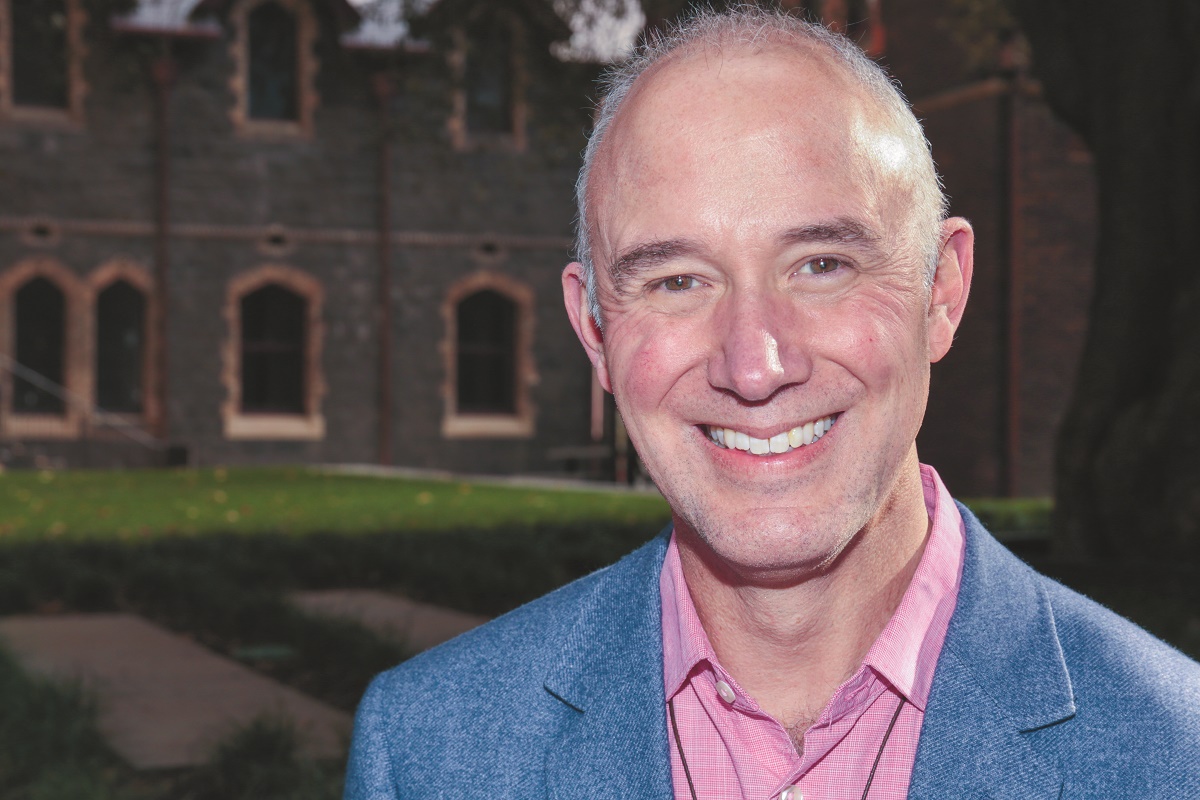
David Fotheringham has taken up the baton from Denise Liersch as Moderator.
How did you test it out?
Well, so the year of volunteering under the Order of St Stephen was part of testing. And then I went back to do more physics. I enrolled in a PhD in Canberra at the ANU, and that was a part of testing. And I found myself doing laser physics, spending a lot of time in a small dark room with a bright laser and playing around and doing fun things, but really not feeling that this was where I was called to spend my life, in a small dark room. And so it confirmed for me that actually, no, the call to the church and the youth group was much more significant. In South Australia, the church that I’d reconnected with was the Uniting Church. When I went to Canberra, I visited a number of Uniting Churches and they all wanted me to start a youth group, and that’s not what I was there to do. So I ended up going to a Baptist church that already had a youth group. And I lived in a residential college in Canberra. And I thought about ways that I could connect my college friends with the youth group at the church. And so I got involved in the life of the church there as well as the college life.
You touched briefly on your parents’ reaction and I understand they were quite shocked by this decision to give away a career based around physics, for the church. How difficult was it to tell them that was how you felt?
This was part of why this was a long testing process, because even when I said that I wanted to take a year off to do the volunteer work for the church, it looked like one of them was going to have a heart attack, that kind of thing. It was like they were quite shocked and distressed about it. And that’s why actually I was clear that, no, this is a year of testing. I’m not throwing away physics. I’d won some prizes in physics along the way, including at university. So this was why it was particularly shocking for them and probably concerning for them. But again, that’s why I spent lots of time testing. And so by the time I moved to Melbourne to start studying theology, and moved into a residential college at Whitley College, where I was the senior tutor with pastoral care responsibilities for the college, mum and dad got to see me in that context. And that’s when I think they really came to terms with it. They could see how I was thriving in that kind of context of caring for this community while studying theology.
At that stage, you clearly had no doubts about the path you were on?
That’s right, but the question at that time was whether I was Baptist or Uniting, because while the Uniting Church had been my home, while I was in Canberra it was a Baptist Church that I’d connected with. And so when I came to Melbourne, I asked Uniting and Baptist friends in Canberra where I should go to study and they all said ‘go to Whitley College for a start’. So I did, and then started connecting with the Uniting Faculty of Theology as well. But in exploring all of that, I realised that I was not a Baptist. I was not as enthusiastic about some of the matters that some of the Baptists were enthusiastic about, and I felt the Uniting Church, with all of the ways that it wrestles constructively with the issues of the day, was my home. And so it was good to come back to the Uniting Church.
It’s a fascinating contrast, isn’t it, physics versus faith?
I guess for me, the further you go in physics, you start to get to some of the fundamental questions about how the universe is put together and ultimately why. There come points where physics becomes philosophy and some of those questions. For me, it leads fairly naturally from some of the big questions of the universe into questions of God.
And so you are where you want to be now, I imagine there are no regrets around the choice you made?
No, not at all. No, it’s marvellous being able to share in the ministry of God and share in a church which is active in its inclusive caring and its concern for justice and for the world, and to work with communities of people in sharing together. That has been a joy.
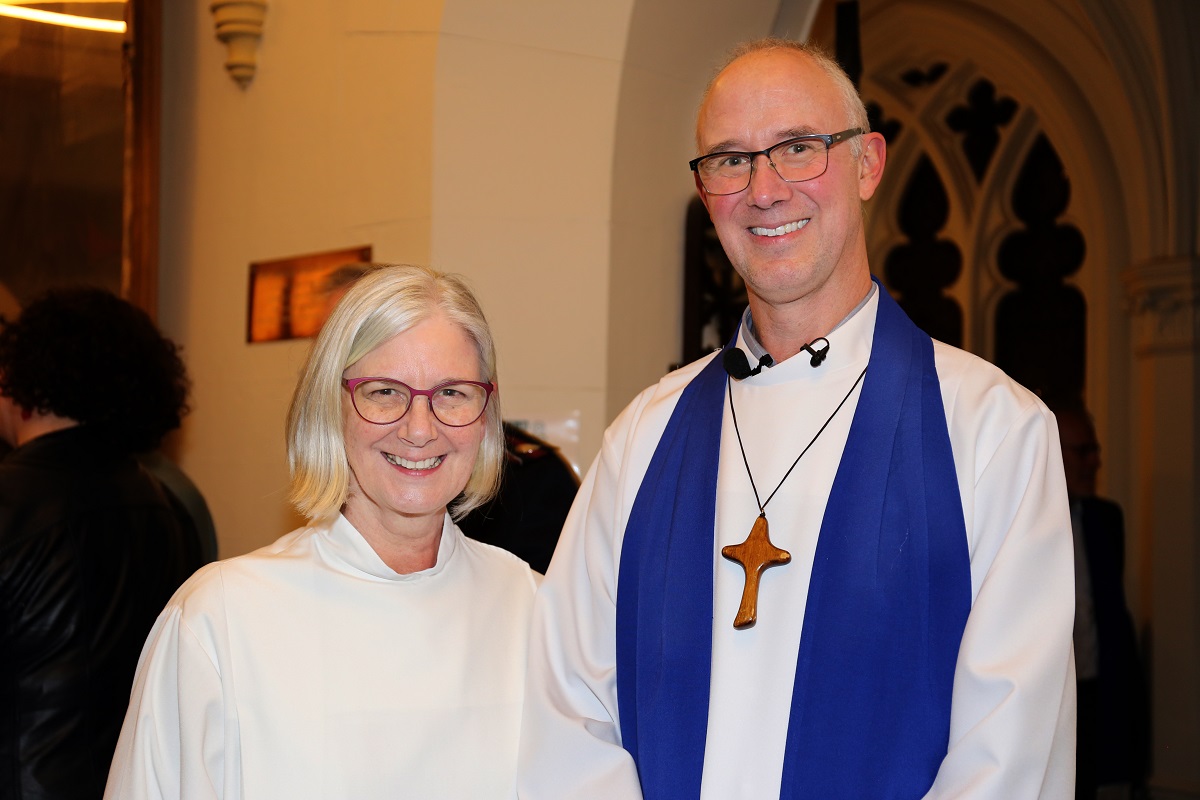
David and Denise Liersch at David’s installation service on June 30.
So if we step back again, you’re at the Baptist Whitley College and you’re studying theology. What are the steps after that?
So I became an associate pastor at a Baptist church, Newmarket Baptist, a little church with strong feminist and inclusive theology, not far from the college. But then I was starting to explore how to come back into the Uniting Church. So I found a Uniting Church congregation that had an evening service so that I could do both. And that brought me to Wesley Church in the city. And so there was quite a contrast in style between the two churches. But as I learned what it was to worship in the Wesley environment, which was quite different, I learned to appreciate another greater depth of worship. And from that base, I pursued the call into candidature, and was accepted. And I really enjoyed the fact that on the way through I was able to do subjects with the whole of the Uniting Faculty of Theology, and I did at least one course with the Churches of Christ College in Mulgrave, and did a number of things at Whitley College as well. So I really appreciated the ecumenical environment there at the same time. I was ordained at the end of 2000, and was actually married at about the same time. So within a couple of months I was married, ordained, and moved house. And so the first parish was in Whittlesea, which took in Kinglake West and Arthurs Creek. And that was a good first start. I had three years there, and then moved to Horsham and had six or seven years there. Horsham was marvellous, I had some difficult moments as well, but overall it was a wonderful congregation and time.
Would you elaborate on the difficulty there?
There was some conflict with a group who had a particular fundamentalist understanding that proved too difficult to resolve. And in the end, there was a parting of ways, which was hard. But after that happened, the congregation was just so loving and so pastoral and just flourished in a new, beautiful way that was really, really moving and very special.
Did that experience teach you anything?
It taught me a lot of things. The whole process of dealing with some of those dynamics was a very, very important, significant learning process through questions of conflict resolution and all of that. And I think I learned too, that it was okay to stand gently and firmly on my principles, and that as the whole community discerned together, we would be able to find the way through, which we did, with the help of the Moderator at the time, actually.
So what came after Horsham?
So our two children, Matthew and Cameron, were born in Horsham and I couldn’t really imagine being called anywhere else, but the Placements Committee approached me about a move to Ashburton and we had a conversation about that and ended up falling in love. And so we came to Ashburton, where we spent six years. And that was a great suburban community. I really enjoyed connecting with the school, with the kids’ hope program, and being a mentor with one of the kids for a very long period of time there, as well as some of the other activities that we were able to run, mainly music, and connect with the community in those sorts of ways. But we had a difficult ending though, because there was some conflict which (coincided) with my wife and I separating, and the best thing for the church was that the congregation and I also separate.
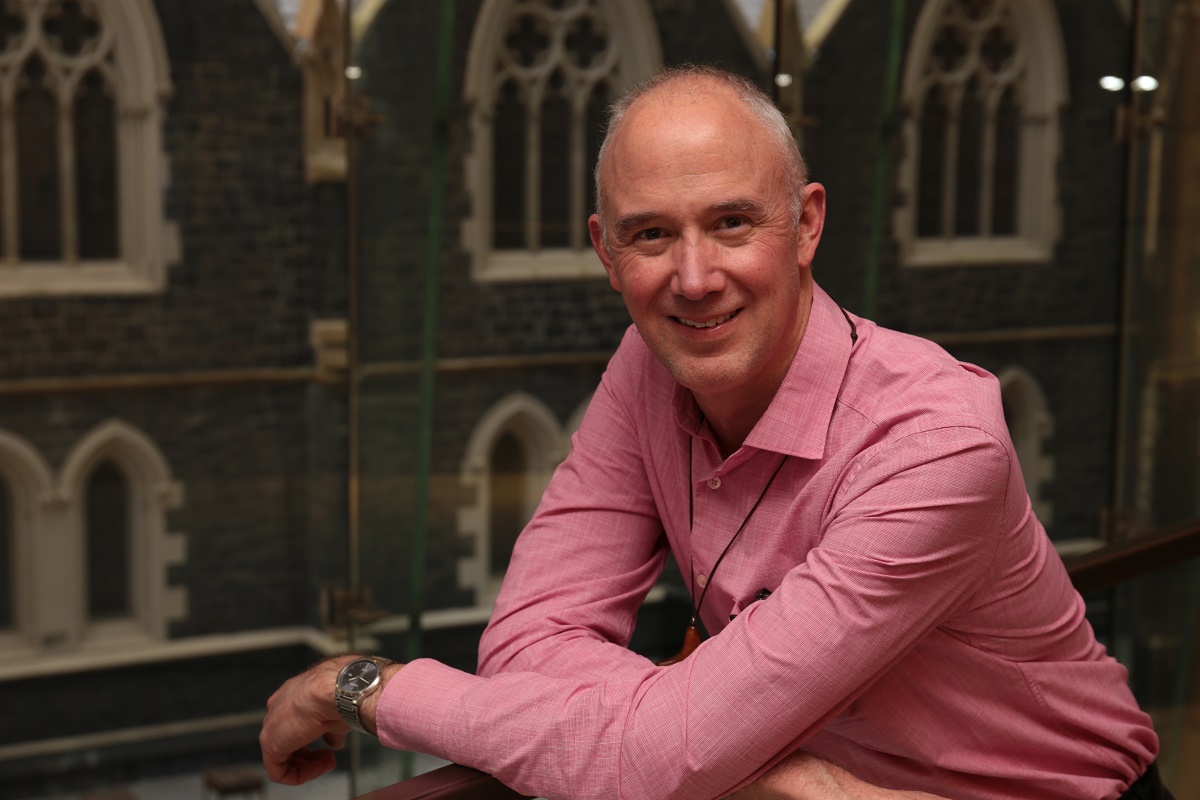
David is honoured to take on the role of Moderator.
Frankston was your last placement as a Minister, wasn’t it?
Yes, it was, and this was one of those things where I was quite surprised because I knew a couple of places that might consider my name as Minister, but I thought that Frankston was going to be geographically too challenging with my kids and their schooling, which with everything else being disrupted, I didn’t want to disrupt that. However, the Placements Committee in their wisdom did put my name in front of Frankston. And we had a conversation, and they were so gracious and understanding and welcoming and we were able to negotiate a way that was going to work well for my kids staying at school, and me being able to minister in Frankston. And it was fantastic. So that was a wonderful new ministry placement, which I’ve deeply enjoyed over the years. And a lot has happened obviously over those years, including COVID-19 and the pivot to worshiping and holding everyone together through Zoom, which ultimately was a really great experience.
Something else quite exciting happened around this time, didn’t it?
Well, during that time I was introduced to Robyn, who is now my wife. And at the end of 2020, we were married in Frankston, but with a limit of 50 people in the building. So it was all in the midst of a COVID-19 lockdown, but we were still able to get married and we were so happy about that.
And there is another exciting event coming up, I believe?
Yes indeed, Robyn and I are expecting a baby in mid to late December and that is going to be a wonderful Christmas present.
So what makes a good Minister?
There are a variety of ways of being a good minister and a variety of good ministers. For me, it’s particularly about being able to hold and love your community, both the congregation and the wider community around them. And to be able to proclaim the gospel of grace in word, in deed, among the community.
So you had placements at Whittlesea, Horsham, Ashburton and Frankston. At what point did you consider the Moderator’s role?
Back in the Horsham days, Isabel Thomas Dobson invited me to be a chaplain to her when she was Moderator. And that was a privilege and a good experience around a little bit of a window into the life of a Moderator. And later on, as I became involved in different roles within the church, I recognised that this could be a possibility one day. In mid to late 2020, I was approached to have a conversation around considering the possibility of the role. I was involved in a series of conversations around the idea, and I knew that there were others having conversations as well. But during that time, certainly the idea started to become real. And in due course, they told me that they would put me forward as one of the nominations, along with two colleagues who I deeply respect. And so began another whole interesting process as we walked together wondering what would happen next.
Were there any doubts in your mind about taking that particular path?
I had been consistently open to the idea. I’ve felt like I’ve been blessed by a number of experiences and time with different groups of people which have helped to form me for this kind of role. And beyond that, it has been to the discernment of the church under the guidance of the spirit. But I certainly have felt like if this was to happen, I would be very grateful for the opportunities that I’ve had and the formation that I’ve been able to have on the way.
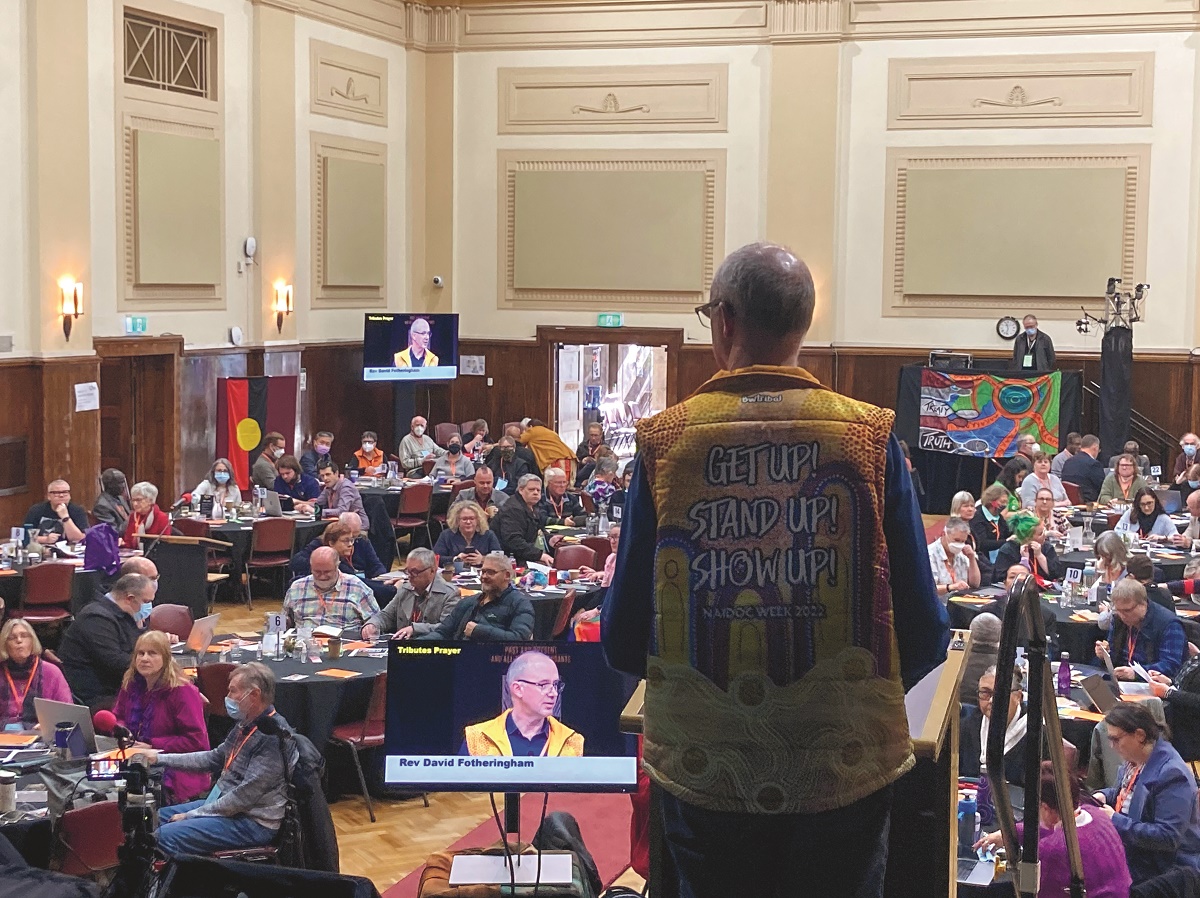
David presides over the final day of Synod 2022, which coincided with NAIDOC Week.
What are your expectations around the role of Moderator?
I’m looking forward to getting around Victoria and Tasmania and seeing and encouraging congregations and communities, and making connections with agencies in all sorts of ways. So, yes, I’m looking forward to that.
Is it a role that weighs heavily on you?
I think that will come and go with the issues of the time. Certainly I’m aware that in some places that sometimes there are some difficult things to work through. And so I know that’s the case, but overall, I also know that we are following the calling of God and we are well supported in the ways that we do that, through a team of ministers, ordained and lay, throughout the church. So I have great confidence that we can work things through well.
What do you want to tackle as Moderator?
Well, the theme for this last Synod and for this time going forward is ‘Arise come with me’. And I think I’m wanting to always be looking for signs of where God is calling us forward, and it might be into new things and new ways, and it might be into all sorts of things that we celebrate. But it’s for us to be able to stand confidently in God’s calling to us, as the Uniting Church, with the things that we are able to gift to the community. I want to encourage us to have confidence in that.
An important issue comes under the umbrella of First and Second Peoples walking together, and there is a lot happening in that space.
Absolutely, and I already appreciate some good relationships and good people to journey with in that space.
What do you want to drive there?
Oh, I think for Second Peoples, there is still a lot of work in really hearing and understanding First Peoples stories, and for us to then be able to walk together is critically important for us as a church in Australia, in these lands now called Australia. So I am very much looking forward to working with indigenous colleagues and with the whole church in continuing the journey forward and working out together, through our listening and walking together, what that means.
Recent Census data indicates a dropping off of the level of interest among people in what we might call organised religion. What’s the challenge ahead for the Uniting Church in that sense?
The challenge ahead is to remain confident in the gospel and to be prepared to step out and make welcome all people who need to hear of the love of God and the possibility of the community that God calls together. That continues to work across age groups, and not withstanding that Census data, there remains work to do, and sharing reconciling love with the community to draw people together as community, is part of our ongoing calling.
Are we well placed to meet the demands of the future?
Yes, we are. But some of what we are doing at the moment is, I guess, adjusting our positions in some senses. So we’re well placed in the sense that we have a good spread of congregations throughout Victoria and Tasmania. The parts where we need to keep working are how we interact with some of the growing population centres, how we work as a regional church, and how we work in particular micro-environments, if you like. So within that, there’s going to be a variety of shapes. So there’ll be faith communities in a variety of relatively niche positions, which is great. We have some of those, and I trust that we will develop more. And we also have more regional churches, which are able to interact with communities in more publicly obvious ways, perhaps. So are we well placed? Yeah, this is where God’s put us. So this is where we start.


